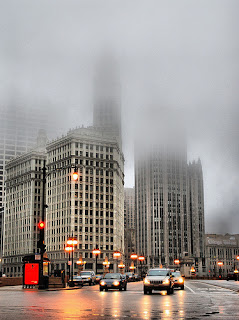
Recently I've been reading The Saxon Stories. A book series by Bernard Cornwell about the Danish invasion of Britain.
As you might imagine - if you had a lot of time on your hands and few, if any, hobbies - many references are made to Odin, the Norse god of war...and poetry.
The story goes that Odin, father of Marvel comics hero Thor, exchanged an eye for a long pull from the Well of Knowledge - and the gift of poetry. Which made me wonder if Odin had any daughters besides The Valkyries.
Because, let's face it, if you're going to have father issues, Poppa might as well have control over victory, death and wisdom...which sounds like a great short story...which led me, as it always does, to The Great Online Repository of all Things Mostly Accurate.
There I found something seasonally-appropriate and crazy interesting: modern day Santa Claus is actually modeled after Odin:
Santa Claus is said to be largely based on Odin, merged with the Christian legend of Saint Nicholas of Myra. Most Christmas traditions in Germanic countries derive from celebrations of the pagan winter solstice holiday Yule as a result of the gradual merging of the two holidays.
Odin was recorded as leading a great Yule hunting party through the sky. Two books from Iceland... describe Odin as riding an eight-legged horse named Sleipnir that could leap great distances, giving rise to comparisons to Santa Claus's reindeer.
(Furthermore) children would place their boots, filled with carrots, straw, or sugar, near the chimney for Odin's flying horse, Sleipnir, to eat. Odin would then reward those children for their kindness by replacing Sleipnir's food with gifts or candy. This practice, she claims, survived in Germany, Belgium, and the Netherlands after the adoption of Christianity and became associated with Saint Nicholas as a result of the process of Christianization and can be still seen in the modern practice of the hanging of stockings at the chimney in some homes.
Who knew?
Need a bit more timely geek goodness? Here's a tie-in with Gandalf:Who knew?
In a letter of 1946 J.R.R. Tolkien stated that he thought of Gandalf as an "Odinic wanderer." Other commentators have also compared Gandalf to Odin in his "Wanderer" guise – an old man with one eye, a long white beard, a wide brimmed hat, and a staff.
Just to tie it all up neatly with a bow on top, Tolkien wrote a poem that beings in a familiar way.
Ho! Ho! Ho! To the bottle I go
To heal my heart and drown my woe
Rain may fall, and wind may blow
And many miles be still to go
But under a tall tree will I lie
And let the clouds go sailing by.
― J.R.R. Tolkien, Ho! Ho! Ho! To the Bottle I Go, a poem found within the chapter, "A Shortcut to Mushrooms" from The Fellowship of the Ring.













